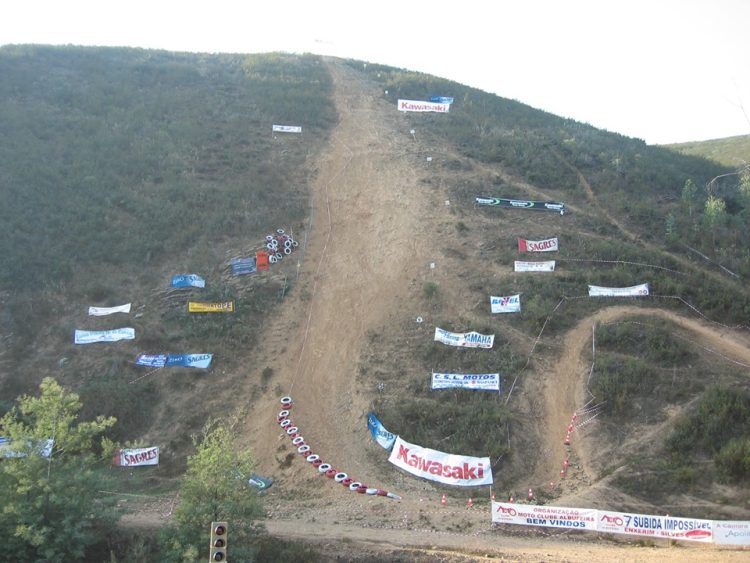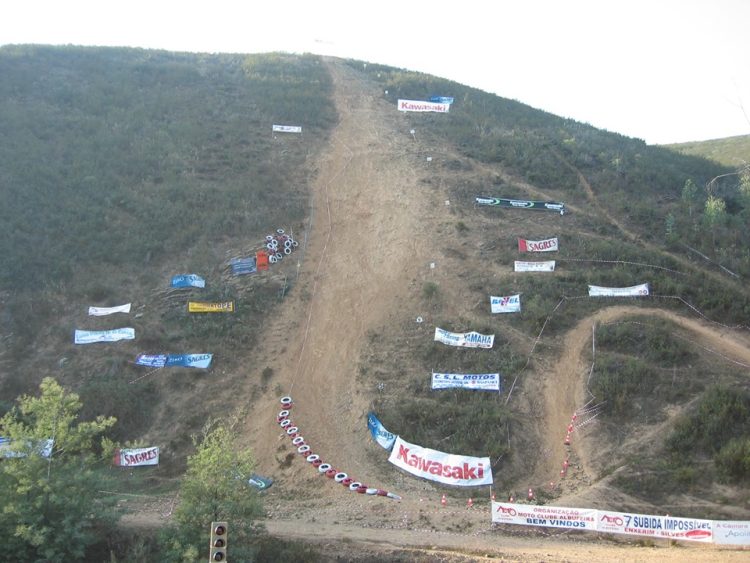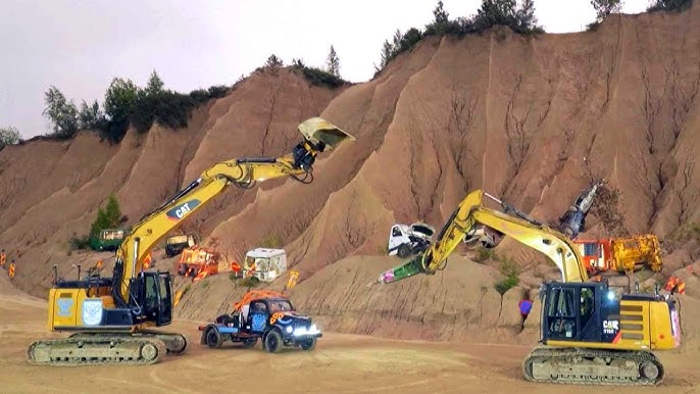Subida Impossível (Impossible Climb) is a challenging motocross hill-climbing event in Portugal that more than lives up to its suggestive name.
Every year, dozens of experienced motocross bike riders gather in the Portuguese city of Silves for a chance to become legends among their peers. Subida Impossível is one of the toughest motocross challenges in the world, requiring perfect control of the bike in order to complete a 110-meter-long course up a rocky hill. 110 meters may not seem like much for professional riders, but keep in mind that in some places, the gradient is over 80%, not to mention the unpredictable terrain and a very narrow course. Let’s just say that it’s not called Impossible Climb for nothing and that there is a reason why only a handful of participants have completed the hill climb in over two decades.

Because Subida Impossível is so difficult to complete, sometimes riders win just by climbing the farthest up the hill before finally succumbing to gravity or going outside the clearly defined lines of the course. For example, last year, João Lourenço managed to cross the finish line, but he ended up being disqualified for going outside the lines, so first place went to Luís Romão, who climbed 72 meters and 50 centimeters before falling off his motorbike. To complete the course, participants must reach the top of the hill without their feet touching the ground.
According to the Albufeira Motorcycle Club, which organizes the event, “the rider’s ability to control his machine, combined with a lot of determination, are fundamental to success, challenging the limits of both. The complexity of the terrain pushes the riders and machines to the limit.”
The rocky terrain is especially problematic because it affects traction, so by pushing the bike too much, you risk losing control, while not pushing it hard enough means you can’t fight the pull of gravity efficiently. Injuries rarely occur, but some participants have reported ruining their bikes at Subida Impossível. I guess it’s all part of the experience.













